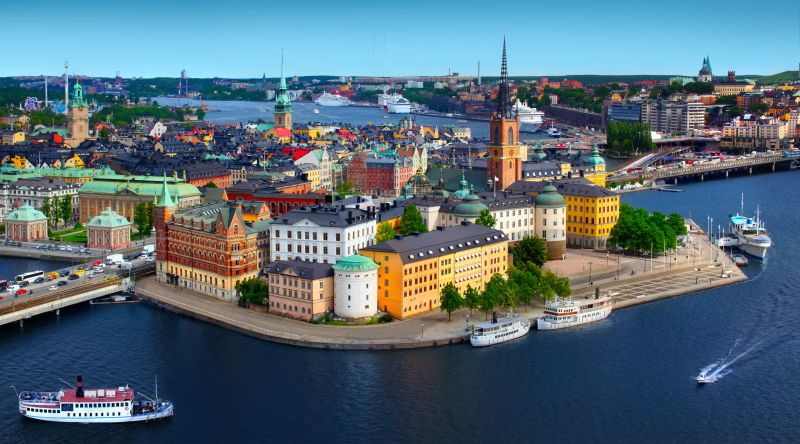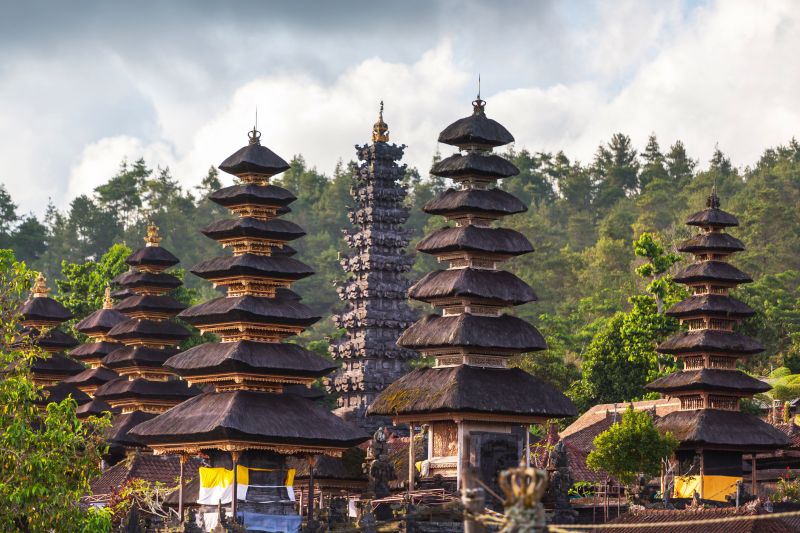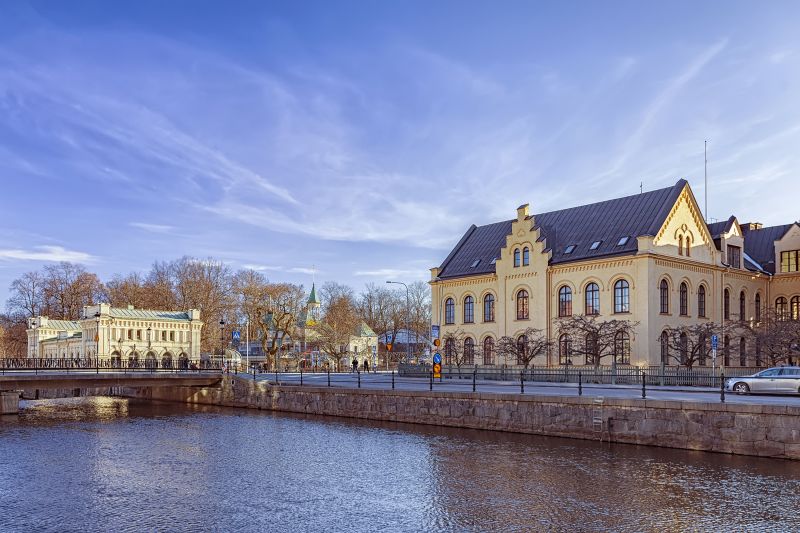Africatourisme's Response to Covid-19: Understanding, Impact and Measures Taken.
Time:2024-05-25 Page View:333
Africatourisme covid, the outbreak of the novel coronavirus pandemic in the African tourism industry during the year 2020 has caused severe socioeconomic impacts in the region.
According to the Tourism and Travel Industry, most travel companies and tourist destinations have been forced to shut down temporarily, leading to the loss of mass tourism revenue. Additionally, many employees in the tourism industry have lost their jobs, which has resulted in a sharp spike in the unemployment rate in the affected regions. The pandemic hit the African tourism industry at the peak of its growth, causing unprecedented damage to a vital sector of the economy.
How has Africatourisme adapted to covid restrictions?

The COVID-19 pandemic has caused a significant impact on global tourism, including Africatourisme. However, the company has been actively adapting to the new normal to continue providing excellent travel experiences to its customers while ensuring their safety. This article will explore how Africatourisme has adapted to the COVID-19 pandemic.
1. Introduction of strict health and safety measures
Africatourisme understands that customers' health and safety are of utmost importance during this pandemic. As such, the company has introduced several strict health and safety measures to ensure customers' safety.
The company requires mandatory temperature checks for all travelers before boarding any vehicles. Additionally, hand sanitizers are made available in all transport vehicles and frequently touched surfaces are regularly disinfected. Tour guides and drivers also follow strict COVID-19 protocols to ensure travelers' safety.
2. Introduction of virtual tours
The restrictions of traveling have led Africatourisme to introduce virtual tours. Virtual tours offer customers an opportunity to experience their desired destination from the comfort of their homes. The virtual tours allow customers to visit different tourist destinations in Africa through immersive videos.
The virtual tour is an excellent way for customers to get a taste of African culture. Moreover, virtual tours provide an excellent opportunity for customers to plan their future physical visits.
3. Offering flexible and safe travel options
Customers' travel plans have been disrupted due to the pandemic, and Africatourisme has provided customers with flexible and safe travel options. The company now offers customers multiple options to book their trips, such as choosing less crowded destinations or private tours to ensure the customers' well-being.
The company also introduced a flexible booking policy, allowing customers to book their trips with a low deposit and free cancellations.
4. Collaborating with local health authorities
Africatourisme understands that local health authorities' updated policies and regulations can significantly affect customers' travel experiences. As such, the company collaborates with the local health authorities to understand and implement the latest health protocols and restrictions.
Collaboration with local health authorities has been crucial in ensuring safe travel experiences for customers.
5. Providing education and awareness on COVID-19
Africatourisme recognizes the importance of educating customers about COVID-19 to ensure responsible travel. The company provides information and awareness campaigns to customers regarding the pandemic regulations and guidelines.
The company also educates customers on how to protect themselves and others from the virus while traveling and recommends travelers to get vaccinated before their trips to protect themselves and others.
What is Africatourisme covid?

Africatourisme Covid is a platform created by Africa Tourism Association to provide information and resources about the Covid-19 global pandemic and its impact on the travel and tourism industry in Africa. The platform aims to share accurate and current information, best practices, and strategies that can help the industry stakeholders navigate through the crisis and eventually come out stronger after it's over.
1. The Impact of Covid-19 on Africa's Travel and Tourism Industry
The Covid-19 pandemic has had a devastating impact on Africa's travel and tourism industry, which is a major contributor to the continent's economic growth and job creation. With the closing of borders, cancellation of flights, and restriction of movements, the industry has faced unprecedented challenges that have resulted in reduced revenue, lay-offs, and business closures.
However, the industry has also shown resilience and innovation in adapting to the new normal. From implementing hygiene and safety protocols to promoting domestic tourism, the industry players have demonstrated their commitment to rebuilding and sustaining the industry post-Covid.
2. Africatourisme Covid Resources and Solutions
Africatourisme Covid provides a wealth of resources and solutions that can help industry stakeholders address the challenges and opportunities presented by the pandemic. These include:
2.1 Information and Updates
The platform provides up-to-date information and insights on the Covid-19 situation in Africa and globally, including travel restrictions, health and safety guidelines, and industry trends and forecasts. This helps industry players make informed decisions and adjust their strategies accordingly.
2.2 Training and Capacity Building
The platform offers training and capacity building opportunities for industry stakeholders, including webinars, workshops, and skill-building sessions. These help to equip the industry players with the knowledge and skills needed to adapt to the changing market conditions and stay competitive in the post-Covid era.
2.3 Networking and Collaboration
Africatourisme Covid provides a platform for industry stakeholders to connect, network, and collaborate with each other. This helps to foster partnerships, explore new business models, and share best practices and success stories that can benefit the industry as a whole.
3. Future Outlook for Africa's Travel and Tourism Industry
Despite the challenges posed by Covid-19, the future outlook for Africa's travel and tourism industry remains positive. The continent's rich natural and cultural heritage, diverse attractions, and welcoming hospitality make it a desirable destination for domestic and international travelers alike. With the right strategies and solutions in place, the industry can rebound and thrive in the post-Covid era.
What measures has Africatourisme taken to address covid?

As the world continues to grapple with the Covid-19 pandemic, the travel and tourism industry has been hit hard. Africatourisme, an African-based tour agency, has not been spared either. Nevertheless, the company has put in place measures to ensure that their clients are safe and that their business continues to thrive. This article will examine the steps the tour company has taken to address the pandemic.
1. Pre-travel measures
Africatourisme has implemented pre-travel measures to ensure that their clients come prepared for their travels. All clients must complete a health declaration form before their trip. The form requires travelers to provide information on any recent travel, close contact with a Covid-19 patient, and symptoms such as fever, cough, or shortness of breath, among others. Anyone displaying symptoms will not be allowed to travel. Additionally, all travelers must have a valid negative Covid-19 test certificate, not older than 72 hours at the time of travel.
The company has also provided its clients with Covid-19 information packs. These packs contain information about the virus, symptoms to watch out for, and what to do in case an individual falls sick while on the trip.
2. In-travel measures
During travel, Africatourisme ensures that all health protocols are followed. The company provides personal protective equipment (PPE) for all their clients and staff, including face masks, sanitizers, and gloves. Clients are expected to wear face masks whenever they are outside their rooms or in a public area.
In vehicles or shared spaces such as dining areas, the company ensures social distancing is maintained. Additionally, all accommodations used by the company have implemented strict hygiene protocols. Further, all vehicles used by the company are sanitized daily, and all travelers must sanitize their hands before boarding.
3. Post-Travel Measures
Upon returning home, Africatourisme clients receive a follow-up call from the company to check on their health status. The company also emphasizes the need for clients to self-quarantine for at least 14 days after their trip. Additionally, anyone who develops symptoms after the trip is advised to contact medical professionals immediately and inform them of their travel history.
4. Staff Measures
Africatourisme has taken steps to ensure that its staff is also protected from Covid-19. All employees undergo training on Covid-19 protocols, including proper PPE use, social distancing, and hygiene. Additionally, staff members who have symptoms or have been in close contact with Covid-19 patients are required to self-quarantine and seek medical attention immediately.
5. Business Continuity Measures
The pandemic has had a significant impact on the travel and tourism industry. Africatourisme has been able to stay afloat through diversification of its product offering and continued marketing efforts. The company has also built partnerships with local health authorities and health service providers to ensure continuity of business.
What is Africatourisme covid?

Africatourisme covid, also known as ATC, is an online service platform that provides information about African tourism during the COVID-19 pandemic. It aims to promote and support the sustainable development of African tourism by providing vital information on travel restrictions, health regulations, and safety measures put in place by African countries to combat the spread of COVID-19.
1. Travel Restrictions
One of the significant challenges of traveling during the COVID-19 pandemic is the different travel restrictions imposed by different countries to control the spread of the virus. ATC provides up-to-date information on the travel restrictions in each African country and their entry requirements. It also provides travelers with helpful tips on how to navigate these restrictions and the necessary documents they need to provide for hassle-free trips.
Furthermore, ATC partners with transportation companies such as airlines, train, and bus services, providing information on cancellations, refunds, and possible schedule changes that may affect travelers' plans.
2. Health Regulations and Safety Measures
The safety of travelers is a top priority for ATC, and it ensures that travelers comply with health regulations and safety measures put in place by African countries. This includes wearing masks, regular hand washing, and maintaining social distancing.
ATC provides travelers with information on accommodation providers that have put in place measures to ensure the safety of their guests. It also lists restaurants, recreational facilities, and tourist sites that have complied with health regulations and safety measures.
3. Sustainability of African Tourism
One of the objectives of ATC is to promote the sustainable development of African tourism. The platform encourages travelers to partake in sustainable tourism practices that support and enhance local economies and natural resources.
ATC partners with several tour operators that offer sustainable tourism packages and conservation activities that support the environment and local communities. It also provides travelers with information on environmentally responsible tourism practices to help reduce their impact on the environment while enjoying their trip.
4. Promotion of African Tourism
ATC promotes African tourism by showcasing the beauty and rich cultural heritage of African countries. It provides travelers with detailed information on tourist attractions, festivals, and local events happening in different African countries.
ATC partners with African governments and tourism boards to promote African tourism to domestic and international travelers. It helps to increase visitor arrivals, create employment opportunities, and stimulate economic growth in African countries.
5. Benefits of Using Africatourisme covid
Using ATC assures travelers of hassle-free trips and a memorable African experience. It saves time by providing reliable information on travel restrictions, health regulations, and safety measures put in place by African countries. It also helps travelers to make informed decisions on accommodation, restaurants, and tourist sites that comply with health regulations and safety measures.
Furthermore, using ATC encourages sustainable tourism practices that support local communities and conserve natural resources. It also supports the growth and development of African tourism, creating employment opportunities, and promoting economic growth.
What is the outlook for Africatourisme post-covid?

The COVID-19 pandemic has hit the tourism industry worldwide, and Africa is no exception. Due to restrictions on travel and quarantine measures, the continent's tourism industry has suffered significantly. Thus, many are wondering what the outlook is for Africatourisme post-COVID. In this article, we discuss the possible scenarios that could unfold in the coming years.
1. Domestic Tourism Will Lead the Way
With international travel still limited, domestic tourism will be the driving force behind the recovery of the Africatourisme industry. Domestic tourism's growth will depend on factors such as disposable income, quality of domestic attractions, and accessibility of transportation. Governments can support domestic tourism by investing in infrastructure, promoting local destinations, and offering incentives for local travel.
Favorable exchange rates within some African countries could encourage domestic tourism. South Africa, for example, is an affordable destination for locals and has excellent options for safari and beach holidays.
2. Slow Recovery of International Tourism
The reopening of borders might take longer than anticipated. Travelers' behaviors have significantly changed amidst the pandemic, and they prioritize safety as well as the value for money. This shift will affect the Africatourisme industry, with many travelers choosing to visit perceived safer destinations such as Europe for their vacations rather than less developed African countries. Additionally, a lack of flights to Africa and stringent visa regulations in some African countries could further hinder international tourism's recovery prospects.
A slow recovery could mean lower tourist numbers and revenue for African countries that rely heavily on international tourism. For those countries, the loss of income could result in a long-term impact on their economies.
3. Innovative Strategies Can Save the Industry
Adversity can lead to innovation, and the African tourism industry should adapt to the current situation to survive and thrive. Innovative strategies could include:
Virtual tours and experiences. Virtual tours have gained popularity amidst the pandemic and could attract potential visitors to African countries. Attractions such as cultural museums, wildlife sanctuaries, and historic landmarks can be showcased through virtual tours. This will enable visitors to experience Africa's vast offerings without leaving their home countries.
Safety measures and campaigns. The implementation of strict safety measures could provide reassurance to international travelers about Africa's safety during the pandemic. Safety measures that can be enforced include checking temperature, sanitizing frequently touched surfaces, mandating masks in tourist locations, and enforcing appropriate social distancing. African countries could also promote their safety measures through campaigns to encourage more risk-averse tourists.
4. Growing Opportunity for Sustainable Tourism
The pandemic has highlighted the need for sustainable tourism practices globally. As countries recover from the pandemic's economic impacts, they should consider sustainable tourism as a means of rebuilding. Sustainable tourism focuses on environmental conservation, community development, and equitable wealth distribution. African countries could leverage their abundant natural resources and cultural heritage to attract tourists interested in sustainable tourism practices.
While infrastructure development, enhancement of tourist offerings, and improvements in travel arrangements remain vital to the Africatourisme industry's growth, sustainable tourism practices could be a unique selling point. Sustainable tourism ensures that tourism supports conservation goals, promotes local culture, and provides sustainable income for local communities.
What is the outlook for Africatourisme post-covid?
As the world comes to grips with the impact of the COVID-19 pandemic, the tourism industry has been hit particularly hard. The African continent, which has always relied on tourism as a major source of revenue, has seen a significant drop in the number of visitors. However, as vaccines become more widely available and travel restrictions are lifted, what is the outlook for Africatourisme post-covid? Let's take a closer look:
1. The impact of the pandemic on Africatourisme
The pandemic has had a devastating effect on the tourism industry in Africa. Many countries have closed their borders to international travelers, and those that have opened have implemented strict travel restrictions. As a result, many tour operators, hotels, and other tourism-related businesses have been forced to close, and thousands of jobs have been lost.
According to the United Nations World Tourism Organization (UNWTO), Africa saw a decline in international tourist arrivals of 75% in 2020. This drop is expected to cost the continent's tourism industry an estimated $55 billion in revenue.
2. A slow road to recovery
While the rollout of vaccines is providing hope for the travel industry, the road to recovery for Africatourisme is expected to be slow. Many countries in Africa are still struggling to contain the spread of the virus, and vaccine distribution has been slow and uneven.
In addition, the impact of the pandemic on the global economy means that many potential travelers may not have the disposable income to travel, particularly long haul. This will likely continue to impact the number of visitors to the continent, particularly from key markets such as Europe and the United States.
3. The importance of domestic tourism
As a result of the decline in international travel, there has been a renewed focus on domestic tourism in many African countries. This has led to innovative approaches such as package deals for locals, and campaigns encouraging Africans to explore their own countries.
While domestic tourism is unlikely to fully replace international travel as a source of income for the tourism industry, it does provide a much-needed lifeline for many businesses that have been struggling to stay afloat.
4. The potential for sustainable tourism
The pandemic has also highlighted the need for sustainable tourism practices in Africa. While the continent has always been known for its wildlife and natural beauty, the impact of mass tourism on the environment has been significant.
There is growing recognition of the need to promote sustainable, responsible tourism practices that benefit both the local communities and the environment. This includes initiatives such as promoting eco-tourism, supporting community-based tourism projects, and encouraging the use of renewable energy in tourism-related businesses.
5. The role of technology
The pandemic has accelerated the adoption of technology in the tourism industry, and this trend is likely to continue post-covid. In Africa, this includes the use of mobile apps to book travel and accommodation, and virtual reality tours that allow travelers to experience the destination before they book.
Technology can also play a role in promoting sustainable tourism practices, such as the use of blockchain technology to track the supply chain and ensure that tourism-related businesses are adhering to sustainability standards.
What measures has Africatourisme taken to address covid?
As the covid pandemic continues to grip the world, the travel and tourism industry has been hit hard. However, Africatourisme, one of the premier travel and safari operators in Africa, has been taking decisive action to help ensure the safety and well-being of its clients. From implementing strict health and safety protocols to providing flexible booking policies, Africatourisme has been at the forefront of the fight against Covid in the travel industry.
1. Health and Safety Measures
One of the most important aspects of managing the spread of Covid is the implementation of health and safety measures. Africatourisme has been implementing the latest guidelines and protocols provided by global health experts and local authorities to ensure the safety of its clients. This includes regular sanitation of all areas, provision of hand sanitizers, and the mandatory wearing of face masks for staff and guests.
Additionally, Africatourisme has implemented temperature checks for all guests and staff at the entrances of its lodges and camps. Any guest or staff member displaying symptoms of illness will immediately be isolated and offered medical assistance.
2. Flexible Booking Policies
Another key measure that Africatourisme has taken in response to Covid is the implementation of flexible booking policies. Many travelers have been hesitant to book trips due to the uncertainty of the situation and potential changes to travel restrictions. To help alleviate this concern, Africatourisme has introduced flexible booking policies that allow clients to postpone their trip for up to 12 months from the original travel date without penalty.
If a guest cannot travel on their scheduled dates due to Covid-related issues such as travel bans or illness, Africatourisme will offer the option of a credit note for future use or a refund.
3. Staff Training and Incentives
Keeping staff informed and motivated is essential to ensuring that health and safety protocols are followed. Africatourisme has implemented staff training programs to educate staff on the latest Covid guidelines and protocols.
Staff members who display exemplary adherence to the guidelines and protocols are also recognized with incentives and rewards. This has helped motivate staff to take personal responsibility for implementing the necessary measures to prevent the spread of Covid.
4. Communication with Clients
Effective communication plays a crucial role in ensuring that clients are well-informed and confident in their travel plans. To this end, Africatourisme has made it a priority to keep clients informed of any changes to travel restrictions or protocols related to Covid.
Clients are provided with regular updates on the latest travel guidelines and protocols, as well as any changes to Africatourisme's policies and procedures in response to Covid. This has helped to build trust and confidence among clients, which is essential to the travel industry's recovery from the pandemic.
5. Contribution to Local Communities
Africatourisme recognizes that the fight against Covid is not just a matter of the travel industry; it requires collective effort from all sectors of society. To this end, Africatourisme has been contributing to various initiatives aimed at mitigating the impact of Covid on local communities.
Africatourisme has been supporting local health centers and hospitals by providing equipment and supplies such as protective gear for health workers. The company has also been providing financial assistance to communities that have been impacted by the pandemic, such as donations to food banks and support for small businesses.
How has Africatourisme been affected by COVID?
The COVID-19 pandemic has been an unprecedented global crisis. With the impact of COVID-19 spreading across various countries and industries, the tourism sector has been hit hard. As one of the leading tour companies in Africa, Africatourisme is no exception. This article seeks to explore how the company has been affected by COVID-19 and the strategies Africatourisme has adopted to mitigate the effects of the crisis.
1. A significant drop in inbound tourism
Due to the pandemic, there has been a considerable decrease in the number of tourists visiting Africa. This decline has adversely affected Africatourisme's business operations as the company heavily relies on inbound tourism. The travel restrictions imposed globally have also had a significant impact on the company's operation, with many tourists canceling or postponing their trips to Africa. Due to this, Africatourisme has had to downscale its operations and put staff members on unpaid leave.
The company has also seen a decline in its revenue generation. Without incoming tourists, Africatourisme has had to look for other ways to earn revenue. One strategy the company has adopted is offering virtual tours to interested clients. The virtual tours allow potential clients to experience Africa's beauty while at home, increasing the possibility of generating revenue through sales of souvenirs and merchandise.
2. Changes in consumer behavior and preferences
The pandemic has caused a significant shift in consumer behavior and preferences. Tourists planning to visit Africa now look for tour companies that provide flexible travel arrangements, including cancellations and refunds. Africatourisme has had to adjust its policies to cater to these new demands. The company now allows clients to cancel or postpone their tours to Africa without additional charges. The company has also been advocating for travel insurance policies that cater to pandemics, which is becoming increasingly popular among tourists.
The pandemic has also caused a widespread interest in eco-tourism. Tourists are now inclined to book trips that promote environmental conservation and sustainability. Africatourisme has recognized this new trend and has begun offering more eco-tourism packages. The company partners with conservation organizations to offer tours that promote wildlife preservation, environmental education, and responsible tourism practices.
3. Increased emphasis on hygiene protocols
The pandemic has required an increased emphasis on hygiene protocols. Tourists are becoming increasingly conscious of their health and safety while traveling and demand that tour companies provide clean and safe environments. Africatourisme has had to implement strict hygiene protocols to ensure the safety of its clients and staff members. The company has developed comprehensive COVID-19 guidelines for its tours, which include regular sanitization of tour vehicles, mandatory temperature checks, and social distancing measures during the tours' entire duration.
4. Building resilience through digital transformation
The pandemic has highlighted the importance of digitalization and has forced many companies to adjust their business models and operations. Africatourisme has recognized the need for digital transformation to remain competitive in the industry. The company has focused on enhancing its digital capabilities, such as increasing its online presence and investing in e-commerce systems. The company has launched an online booking platform that allows clients to book tours and make payments without visiting the physical offices, providing convenience and safety to clients during the pandemic.
5. Collaborating with other stakeholders in the industry
Africatourisme has recognized the importance of collaboration with other stakeholders in the tourism industry to weather the impacts of COVID-19. The company has partnered with other tour companies, airlines, hotels, and government organizations to create a unified front in addressing the pandemic's challenges. The collaboration has provided vital support to the tourism industry, such as lobbying the government for tax relief and other regulatory measures to support the recovery of the sector.
What impact has Africatourisme covid had on African tourism industry?
In the wake of the COVID-19 pandemic, the global tourism industry has suffered a severe setback. African tourism has also been hit hard, with revenues dropping by over 90 percent as the pandemic forced most countries to shut their borders and implement travel restrictions. As the world grapples with the impact of the pandemic, it is important to examine the specific effects that Africatourisme COVID has had on the African tourism industry.
1. Reduction in tourist arrivals
The most significant impact of Africatourisme COVID on the African tourism industry has been the reduction in the number of tourists arriving in the continent. According to the World Tourism Organization, African tourism experienced a 98 percent decline in tourist arrivals between January and May 2020 compared to the same period in 2019. This has had a direct impact on revenue generation as most African countries depend heavily on tourism as a source of income.
The decrease in tourist arrivals has been due to the closure of borders and travel restrictions implemented by governments across the continent to curb the spread of COVID-19. The suspension of air travel and the implementation of quarantine measures have also discouraged travel to the continent. As a result, hotels, safari lodges, and other tourist establishments have recorded low occupancy levels, leading to significant job losses in the tourism industry.
2. Loss of revenue for African countries
The African tourism industry is a vital source of foreign exchange and employment. The decline in tourism has resulted in a significant loss of revenue for African countries, affecting their economic growth and development. According to the African Development Bank, the pandemic could cause a loss of $120 billion in economic activity in Africa, with the tourism industry being the hardest hit.
Many African countries have implemented measures to cushion the tourism sector from the impact of the pandemic. These include the provision of incentives to tourism establishments, the waiver of fees and taxes, and the creation of emergency funds to support the sector. However, these measures have not been enough to offset the significant losses experienced in the industry.
3. Disruption of tourism supply chain
The Africatourisme COVID pandemic has also disrupted the tourism supply chain in Africa. Many companies that supply goods and services to the tourism industry have suffered losses due to the decline in demand. These include tour operators, transport companies, souvenir shops, and restaurants.
The shutdown of the tourism industry has also affected the conservation efforts in African parks and reserves, as these depend heavily on revenue generated from tourism. Wildlife conservation agencies have been forced to reduce their operations, putting the lives of many animals at risk.
4. Adaptation to new operating models
The Africatourisme COVID pandemic has forced the tourism industry in Africa to adapt to new operating models. Many businesses have had to pivot to attract local tourists and explore domestic tourism. They have also implemented new health and safety measures to reassure tourists and comply with regulations. These include strict hygiene protocols, social distancing, and the use of personal protective equipment.
The pandemic has also accelerated the adoption of digital technologies in the tourism industry, with more businesses embracing virtual tours, online bookings, and cashless payments. The use of technology has helped to minimize physical contact, reduce the risk of infection, and improve efficiency in the industry.
5. The Road to Recovery
As the world continues to battle the COVID-19 pandemic, there is hope for African tourism to recover. Governments across the continent are working on reopening their borders, implementing travel protocols, and promoting their destinations to international tourists. The African Union has also launched a plan to revitalize the tourism industry in Africa, including the creation of a continental tourism strategy and the provision of financial support to the sector.
African countries can also leverage on the growth of the domestic market, which has shown potential as local tourists seek to explore their own countries. Governments can invest in developing domestic tourism infrastructure, promoting cultural and environmental heritage sites, and providing incentives to local tourists.
Contact Us

